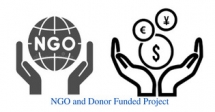|
|
Training on Climate Finance and Stakeholder Engagement
USD 1,150 |
Venue: Nairobi
Other Dates
| Venue | Date | Fee | |
|---|---|---|---|
| Nairobi, Kenya | 23 - 27 Mar, 2026 | USD1150 |
As the impacts of climate change become increasingly evident, there is a growing urgency to mobilize substantial financial resources and foster effective collaborations to address climate challenges. Climate finance plays a pivotal role in supporting mitigation and adaptation efforts, particularly in developing economies that face resource constraints. International frameworks like the Paris Agreement and mechanisms such as the Green Climate Fund highlight the critical need for innovative financing solutions and the active participation of diverse stakeholders, including governments, private sector actors, and local communities.
Engaging stakeholders effectively is essential for ensuring the success and sustainability of climate initiatives. Stakeholders, ranging from policymakers and financiers to local communities, bring diverse perspectives and resources that are critical for project design, implementation, and long-term impact. However, building trust and collaboration among these groups requires tailored approaches and robust engagement strategies. This course bridges the gap between theory and practice, offering participants practical tools for mobilizing climate finance and fostering partnerships to create climate-resilient systems and drive sustainable development goals.
Target Participants
This course is designed for professionals and decision-makers involved in climate-related initiatives, including policymakers, project managers, environmental specialists, finance officers, and sustainability practitioners from both the public and private sectors.
What You Will Learn
By the end of this course the participants will be able to:
- Develop a clear understanding of climate finance principles, frameworks, and mechanisms
- Enhance skills in stakeholder mapping, engagement, and collaboration for effective climate initiatives
- Explore innovative approaches to mobilizing and managing climate finance
- Understand the role of stakeholder partnerships in achieving climate resilience and sustainable development goals
Course Duration
- Classroom-Based: 5 Days
- Online: 7 Days
Course Outline
Introduction to Climate Finance
- Definition and Importance
- Global Trends and Challenges
- Key Institutions and Frameworks (UNFCCC, Green Climate Fund)
Climate Finance Mechanisms
- Public vs. Private Finance
- Grants, Loans, Equity, and Guarantees
- Carbon Pricing and Trading Mechanisms
Climate Finance Policy and Frameworks
- International Climate Agreements (Paris Agreement, COP Summits)
- ISSB Standards and ESG Reporting
- National and Regional Climate Finance Policies
Green Bonds and Sustainable Investments
- Issuance and Market Trends
- Risks and Opportunities
- Case Studies of Successful Initiatives
Stakeholder Engagement Fundamentals
- Identifying and Mapping Stakeholders
- Tools for Stakeholder Mapping and Prioritization
- Principles of Effective Engagement
Building Trust and Collaboration
- Managing Conflicts and Aligning Goals
- Effective Communication Strategies
- Inclusive and Participatory Approaches
Resource Mobilization for Climate Finance
- Public-Private Partnerships (PPPs)
- Blended Finance Models
- Crowdfunding and Innovative Approaches
Partnering with Development Actors and Investors
- Engaging Development Agencies and Multilateral Institutions
- Preparing Proposals and Pitches
- Managing Donor and Investor Relationships
Community and Local Stakeholder Engagement
- Participatory Climate Project Approaches
- Inclusion and Gender Considerations
- Engaging Indigenous Communities
Monitoring and Evaluation of Stakeholder Engagement
- Metrics and Tools for Evaluation
- Feedback Mechanisms and Reporting
- Continuous Improvement in Stakeholder Relationships
Introduction to Climate Finance
- Definition and Importance
- Global Trends and Challenges
- Key Institutions and Frameworks (UNFCCC, Green Climate Fund)
Climate Finance Mechanisms
- Public vs. Private Finance
- Grants, Loans, Equity, and Guarantees
- Carbon Pricing and Trading Mechanisms
Climate Finance Policy and Frameworks
- International Climate Agreements (Paris Agreement, COP Summits)
- ISSB Standards and ESG Reporting
- National and Regional Climate Finance Policies
Green Bonds and Sustainable Investments
- Issuance and Market Trends
- Risks and Opportunities
- Case Studies of Successful Initiatives
Stakeholder Engagement Fundamentals
- Identifying and Mapping Stakeholders
- Tools for Stakeholder Mapping and Prioritization
- Principles of Effective Engagement
Building Trust and Collaboration
- Managing Conflicts and Aligning Goals
- Effective Communication Strategies
- Inclusive and Participatory Approaches
Resource Mobilization for Climate Finance
- Public-Private Partnerships (PPPs)
- Blended Finance Models
- Crowdfunding and Innovative Approaches
Partnering with Development Actors and Investors
- Engaging Development Agencies and Multilateral Institutions
- Preparing Proposals and Pitches
- Managing Donor and Investor Relationships
Community and Local Stakeholder Engagement
- Participatory Climate Project Approaches
- Inclusion and Gender Considerations
- Engaging Indigenous Communities
Monitoring and Evaluation of Stakeholder Engagement
- Metrics and Tools for Evaluation
- Feedback Mechanisms and Reporting
- Continuous Improvement in Stakeholder Relationships
Training Approach
Our seasoned trainers deliver this course with vast experience as expert professionals in their respective practice fields. The course is taught through a mix of practical activities, presentations, group works and case studies. Training notes and additional reference materials are provided to the participants.
Comprehensive training notes and additional reference materials provided to all participants
Certification
Upon successful completion, participants will receive an official certificate of participation as recognition of their training achievement.
Tailor-Made Course Option
This course can be customized to suit the specific needs of your organization. Tailor-made versions can be delivered on-site or virtually and adapted to focus on your unique challenges, stakeholders, or sector.
Course Booking
Please use the “book now” or “inquire” buttons on this page to either book your space or make further enquiries.
| Nairobi | Feb 23 - 27 Feb, 2026 |
| Nairobi, Kenya | 23 - 27 Mar, 2026 |
Registration: 00:00:am - 00:00:am
Class Session: 08:00:am - 04:00:am
| USD 1,150.00 | (Online Training fee : $700) |
Damaris +254714349537
Related Courses
 Training on Data Management and Statistical Analysis using Stata
Training on Data Management and Statistical Analysis using Stata
5 days, 09 - 13 Mar, 2026
Devimpact Institute
 Training on Resource Mobilization and Proposal Writing
Training on Resource Mobilization and Proposal Writing
5 days, 02 - 06 Mar, 2026
Devimpact Institute





